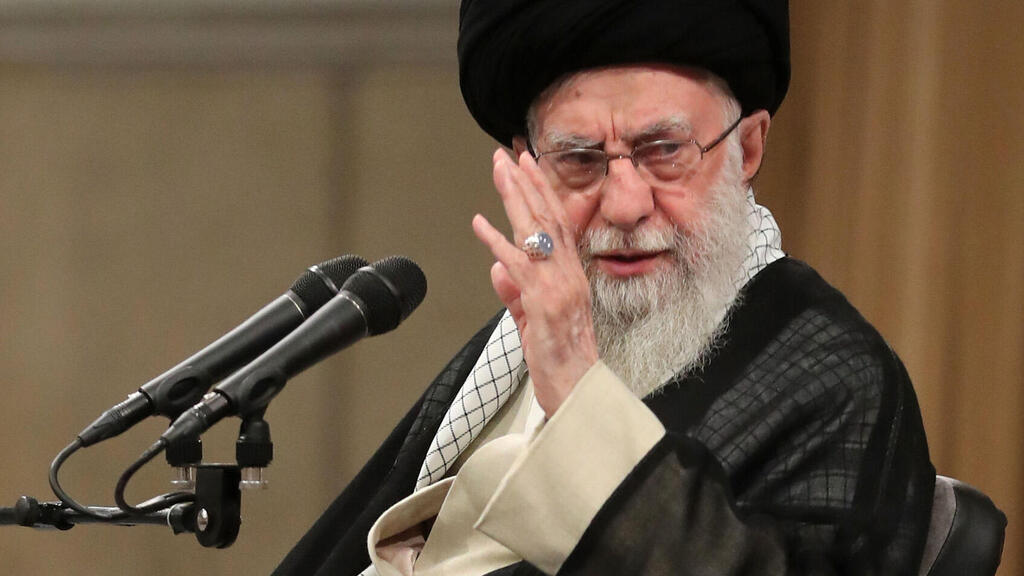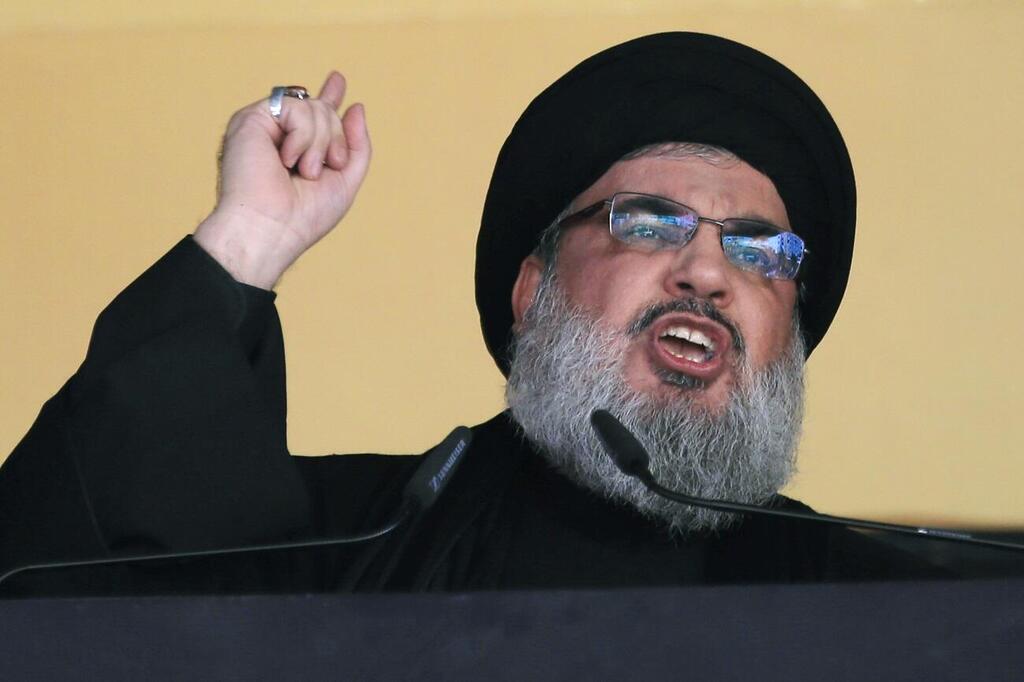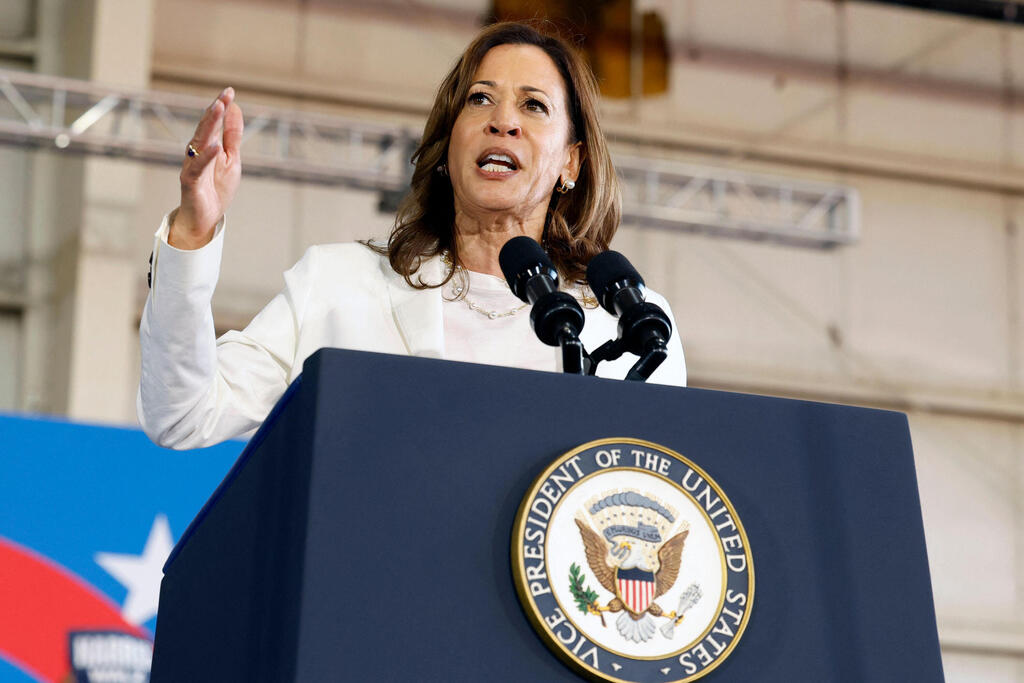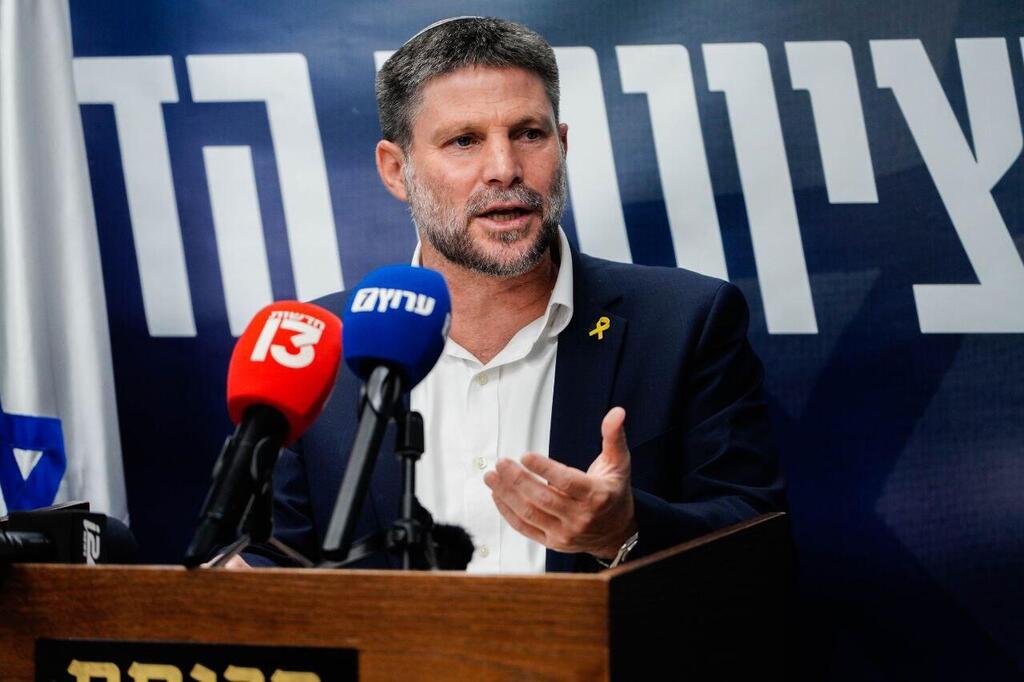Getting your Trinity Audio player ready...
Israel's restraint in the face of potential Iranian and Hezbollah retaliation finds its roots in Washington. The current Democratic administration is deeply concerned about the prospect of a regional war and is determined to prevent it, particularly as U.S. elections approach.
Israel is being pressured and incentivized by Washington to avoid triggering such a conflict, despite suffering significant moral, psychological and economic damage during this period of waiting.
Both the Biden-Harris administration and the Republicans, led by former President Donald Trump, are committed to preventing a regional war and reaching a cease-fire for several reasons.
The first reason is the potential threat to U.S. troops stationed in the Middle East, including 2,500 in Iraq and 900 in Syria. This threat materialized last week in Iraq when Iraqi Shiite militias attacked the Ain al-Assad base with Grad rockets, injuring several U.S. soldiers. This is merely a precursor to what the U.S. anticipates if Israel launches a preemptive strike on Iran. A similar incident occurred on Saturday when Syrian Shiite militias used a drone to attack a U.S. base in northeastern Syria.
President Biden and Vice President Kamala Harris do not want to see U.S. soldiers and civilians returning in coffins from the Middle East, especially during the election campaign, as Trump will undoubtedly use it against them.
The second reason is that the U.S. might be required to deploy additional forces to the Middle East to support Israel and its allies, such as Saudi Arabia and Jordan. These "boots on the ground," as they're called in Washington, could face casualties.
There are already U.S. troops on the ground in the Middle East, and a large contingent of Marines has arrived in Cyprus on landing ships to evacuate U.S. citizens from the region if necessary.
Both the Biden administration and Trump are keen to avoid an increase in U.S. military presence in the Middle East. A regional war before the elections would be a disaster for the Democrats, as Trump would use it against them.
5 View gallery
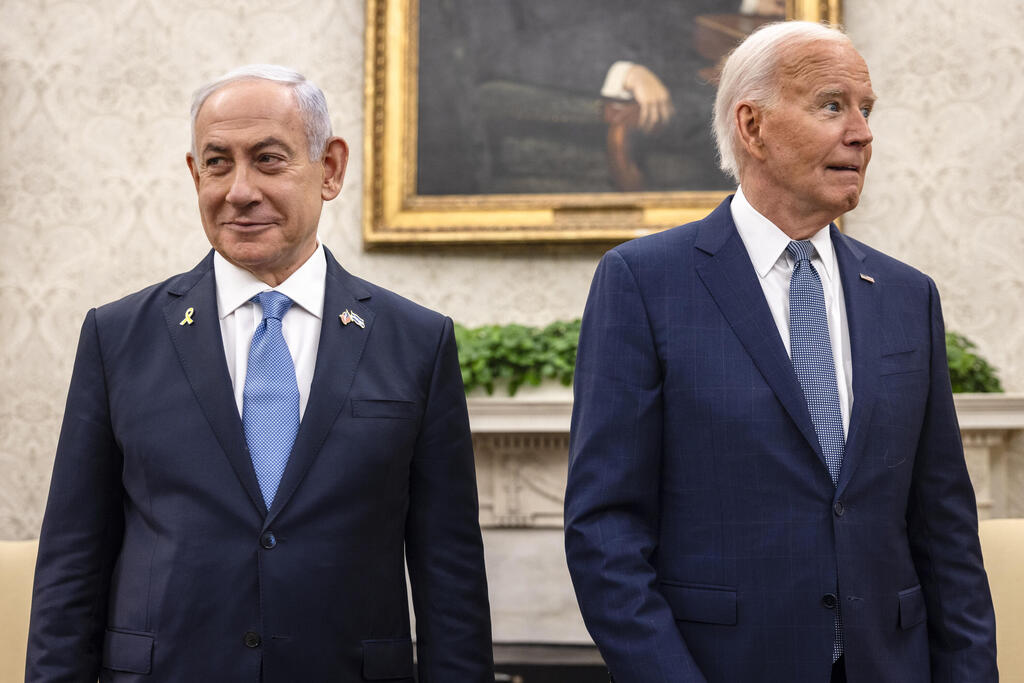

Prime Minister Benjamin Netanyahu and US President Joe Biden
(Photo: EPA/SAMUEL CORUM / POOL)
The third reason is that a regional war would benefit Russia, and to some extent, China, Washington’s main rivals. Such a conflict would divert global and Western attention from Ukraine and strain the U.S. and its NATO allies' logistical support for Kyiv, as some of their munitions would have to be redirected to Israel.
The fourth reason is that a regional war would confront the Biden-Harris administration with the progressive pro-Palestinian wing of their party, potentially costing the Democrats, led by Vice President Kamala Harris, critical swing states like Michigan.
All of the above explains why the U.S. is urging Israel, in secret talks, to refrain from a preemptive strike.
Israel is complying because a preemptive strike is complex militarily due to Iran's distance and size, requiring an Israeli military effort that may be unsustainable if a full-scale exchange of blows develops. Israel desperately needs active and massive U.S. backing, which, under current conditions, won't be available if it initiates a preemptive strike on Iran.
On the other hand, Israel could deliver an effective preemptive strike against Hezbollah and Lebanon, preventing the retaliatory strike threatened by Hezbollah's Secretary-General Hassan Nasrallah.
Israel is ready to act now, at a moment's notice. The plans, weapons and aircraft are prepared—only the order is needed to end this frustrating and destructive waiting period. Prime Minister Benjamin Netanyahu and the defense establishment agree that the IDF will not launch a preemptive strike to avoid the regional war that the U.S. fears.
The almost certain scenario is that if the IDF launched a preemptive strike on Hezbollah and Lebanon, similar to the Israeli Air Force's actions at the start of the 2006 Lebanon War when it neutralized Hezbollah's heavy Zelzal missiles in Operation Density within 39 minutes, Iran and its proxies would likely join the fight, leading to the regional war the U.S. is determined to prevent.
Gone are the days when Israel dealt individually with each element of the radical Shiite axis. Any Israeli initiative could now provoke a war with the entire bloc led by Iran.
Meanwhile, Washington applies considerable diplomatic pressure and offers incentives to dissuade Israel from attacking first, resulting in the frustrating wait we're currently experiencing.
The growing US-Israeli interdependence
Three seemingly unrelated stories published in the last 24 hours in the U.S. highlight the increasing interdependence between Jerusalem and Washington, approaching a near symbiotic relationship. This dynamic is evident not only in the national security interests of the U.S. and Israel—now intertwined as never before since October 7—but also in the domestic politics of both nations.
The first story concerns the approval for Israel to use $3.5 billion from a previously approved aid package by Congress. The second story highlights worrying signs regarding Iran's nuclear weapons program. The third story involves a public rebuke from senior U.S. officials directed at Finance Minister Bezalel Smotrich over his comments about Israel's "moral right" to starve Gaza's two million residents.
The first story, granting Israel permission to utilize $3.5 billion from the $14.1 billion aid package approved by Congress over six months ago, serves as one of the "carrots" the Democratic administration uses to reward Jerusalem for "good behavior" aligned with the interests of the Biden administration and its vice president. This positive reinforcement is also intended to extract goodwill from Netanyahu regarding what is called the "hostage release deal" in Israel and the "war-ending deal" in the U.S.
The Biden-Harris administration aims to present the end of the Middle Eastern conflict and the hostage release as achievements within their election campaign. Another motivation behind this surprise gesture is to demonstrate to the region's Arab countries, U.S. allies and other global allies, such as those in Europe and Asia, that Uncle Sam is a loyal friend who comes to the aid of its allies, even amid disagreements.
The second story serves as a deterrent to Iran, signaling that the U.S. stands alongside Israel in the short term, offering military support against missile and drone attacks, and in the long term, should Tehran complete its preparations to develop a nuclear weapon.
In this regard, a report submitted by the U.S. Intelligence Community to Congress was published Friday, detailing the progress of Iran's nuclear weapons program. The report suggests that Iran has already achieved the status of a "nuclear threshold state" regarding uranium enrichment. More importantly, it indicates that Tehran is preparing and taking indirect actions to proceed to the next stage of developing the weapon itself.
The report explicitly states that Iran's Supreme Leader Ayatollah Ali Khamenei has not yet given the order to develop a nuclear explosive device or a nuclear warhead for a missile. According to the report, Tehran is not currently running an active project in this area. Still, Iranian scientists are conducting research that could aid the Islamic Republic should it decide to renew its "weapons program."
This information complements reports that Iran is also acquiring dual-use components that could help develop and manufacture a nuclear explosive device and warhead. This means that the significant confrontation with Iran and the radical Shiite axis is still ahead, and we will need U.S. assistance to prevent Tehran from acquiring a nuclear weapon and posing an existential threat to Israel's security.
The third story involves a public reprimand directed at Smotrich from the White House National Security Council spokesperson and the U.S. ambassador in an interview with Dana Weiss on Channel 12. In both cases, the reprimand explicitly mentioned Smotrich by name, who said that Israel was providing aid to the Gaza Strip because "there is no choice" and "it may be moral to starve two million Gazans."
This step, which breaks diplomatic protocol, points to the growing involvement of the U.S. administration in Israeli domestic politics. This time it is not through leaks, as there have been many recently in Washington against Netanyahu, but directly—toward a minister whose words could provoke not only the progressive wing of the Democratic Party but also broad constituencies in Western Europe, providing destructive political ammunition to international courts in The Hague dealing with Israel.
Smotrich's irresponsible and foolish remarks, reflecting the worldview of the current government's finance minister, cause damage not only to Israel but could also impact Harris' chances in the presidential race. This is further evidence of the symbiosis and mutual dependence between the U.S. and Israel, which is deepening in all areas.
Just as the radical Shiite axis has "fused" over the past months into a single bloc whose components operate in coordination and mutual assistance, including Iran, as seen in the April missile and drone attack, so too is the pro-Western bloc, which includes not only the regional countries, the U.S. and Israel, but also Britain and France, growing closer.
While there are risks in this development, it also presents an opportunity for Israel to leverage U.S. support efficiently to advance its national security interests without losing its freedom of decision and operational action.
In the Middle East, the U.S. needs Israel and its military and intelligence capabilities almost as much as Jerusalem needs Washington. Therefore, mutual consideration of each other's interests must continue and strengthen, with the next step being implementing a hostage release deal that can extricate both countries from the current strategic deadlock.



